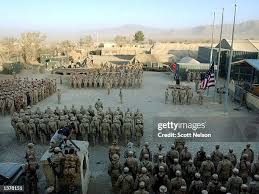The Importance of Bagram Air Base in Modern Military Strategy

Introduction
Bagram Air Base, located north of Kabul, has long been a key military installation for the United States and NATO forces in Afghanistan. Established in the 1950s, the base played a pivotal role during military operations in the region, particularly following the U.S. invasion in 2001. As the largest military facility in Afghanistan, its strategic significance cannot be overstated, making it a focal point in discussions about U.S. military strategy in the region.
Recent Developments
Since the withdrawal of U.S. troops in August 2021, following nearly two decades of military presence in Afghanistan, Bagram Air Base has transitioned into a symbol of changing power dynamics in the country. The base, once bustling with activity, is now largely abandoned, with local Afghan security forces taking over the site. Reports indicate that the Taliban has taken control of the area, repurposing facilities and equipment that were left behind.
In the wake of the U.S. exit, satellite imagery and media reports reveal that the base has seen various renovations under Taliban management aimed at re-establishing it as a logistical hub. Such developments raise questions about security in the region and the international community’s ongoing concerns regarding terrorism and insurgency.
Strategic Importance
Bagram’s location, situated between major urban centres and close to the Afghan border with Pakistan, provides a significant vantage point for monitoring activities in the region. Analysts suggest that its reactivation by the Taliban could enable a quick mobilization of forces if deemed necessary. Furthermore, Bagram’s capacity to accommodate military aircraft remains crucial for any future international operations or humanitarian efforts, as outlined by the ongoing reports of instability in Afghanistan.
Conclusion
The fate of Bagram Air Base serves as a reminder of the complexities involved in military presence and withdrawal. As the Taliban strengthens its grip on Afghanistan, the base is likely to play a role in the evolving geopolitical landscape. The international community will need to watch closely, as changes in Bagram could affect broader regional security and influence future military strategies. The implications for both Afghanistan and global counterterrorism efforts remain significant, necessitating continued vigilance and analysis.









